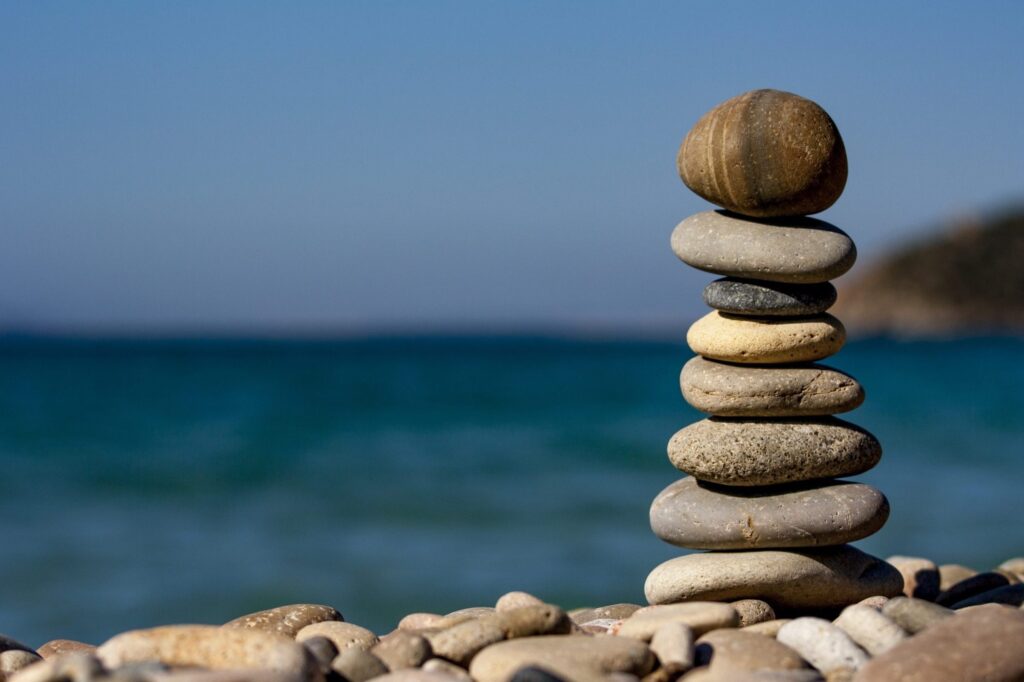Many of us have struggled to juggle our financial commitments and goals at some point. It’s all about how you adapt and balance it all. Balance is so important within your finances. You have to have a happy medium between spending and saving you money.

Goal Setting
Goal setting is one of my favorite things to do because I am a very goal driven person. Setting goals means discipline. You have to stick with your budget in order to meet your goals on time. Saving money tends to be easier when you have a certain purpose in mind. To develop a clear plan, these goals must have both a time frame and a dollar amount. Once you have listed and quantified your goals, you need to prioritize them. You may find, for example, that saving for a new home is more important than buying a new car. Be specific with your goals.
Pay Yourself
Save and invest 5-10% of your gross annual income. Of course, this can be much harder than it sounds. If you’re currently living from paycheck to paycheck, begin by creating a solid budget after tracking all monthly expenses. Once you figure out how you can control your discretionary spending, you can then redirect the money into a savings account. For many people, a good way to start saving regularly is to have a small amount transferred automatically from their paycheck to a savings account or mutual fund. The idea: If you don’t see it, you don’t miss it.
Have An Emergency Fund
Before you commit your savings to investments, make sure you have at least three to six months’ worth of expenses saved in an emergency fund to see yourself through difficult times. Keeping it liquid will ensure that you don’t have to sell investments when their prices are down, and guarantee that you can always get to your money quickly. If you have trouble deciding how much you need to keep on hand, begin by considering the standard expenses you have in a month, and then estimate all the expenses you might have in the future (possible insurance deductibles and other emergencies).
Generally, if you spend a larger portion of your income on irregular expenses that you could cut easily in a financial crisis, the less money you need to keep on hand in your emergency account. If you have dependents, you’d want to keep more money in your emergency fund to offset the greater risk.
Ha
Have a Debt Repayment Plan
If you’re trying to save while carrying a large credit card balance at, say, 19.8%, realize that paying off the debt is a guaranteed return of nearly 20%. Once you pay off your credit cards, use them only for convenience, and pay off the balance each month. If you tend to run up credit card charges, get rid of the plastic and go back to using cash. Don’t buy it unless you can pay with cash. You never want to increase your bad debt unless absolutely necessary. It’s easiest to create this plan after you have figured out your monthly expenses and how much you can potentially put towards your debt each month.

Utilize Tax-Deferred Investments
If your employer has a tax-deferred investment plan like a 401(k) or 403(b), use it. Often, employers will match your investment. Even if they don’t, no taxes are due on your contributions or earnings until you retire and begin withdrawing the funds. Tax-deferred savings means that your investments can grow much faster than they would otherwise.
The same is true of IRAs, although the maximum amount you can invest annually in an IRA is substantially less than what you can put in a 401(k) or 403(b). You should also consider diversifying your investments. All investments involve some trade-off between risk and return. Diversification reduces unnecessary risk by spreading your money among a variety of investments. Aside from diversification, the single most effective strategy is to invest continuously over time, with a long-term perspective.

Create a Will
The simplest way to ensure that your funds, property and personal effects will be distributed according to your wishes is to prepare a will. A will is a legal document that ensures that your assets will be given to family members or other beneficiaries you designate. Having a will is especially important if you have young children because it gives you the opportunity to designate a guardian for them in the event of your death. Although wills are simple to create, about half of all Americans die without a will. With no will to indicate your wishes, the court steps in and distributes your property according to the laws of your state. If you have no children and die without a will, it’s even possible that the state may claim your estate.
To begin, take an inventory of your assets, outline your objectives and determine to which friends and family you wish to distribute your belongings. Then, when drafting a will, be sure to include the following: name a guardian for your children, name an executor, specify an alternate beneficiary and use a residuary clause which typically reads “I give the remainder of my estate to …” Once your will is drafted, you won’t have to think about it again unless your wishes or your financial situation change substantially. I intend on re-evaluating my will every ten years.
Free Gift
Check out the FREE video series on my 3 Keys to Unlocking Your Financial Freedom! This video series touches on Budgets, Tackling Debt, and Ways to Increase Income TODAY! I created this series for those of you who have been hit hard by COVID-19. I want you to know there is nothing you can’t accomplish and creating a plan of action is always a great starting point.